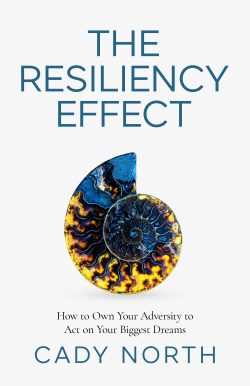Like many of you, I learned about the concept of saving early on because my parents opened up a small savings account for me as a kid. But it wasn’t until I became a teenager that I really started to take an interest in personal finance. When I was 13, my dad asked if I wanted to earn money by doing some extra work for our tiny family business. We owned a property of cottages right near the water that we rented to families and fishermen on vacation in small-town Texas. When I say small town, I mean one high school serving a small community of about 4,000.
My parents definitely needed the help. They were busy trying to make ends meet while taking care of me and my siblings. We never had discussions about it, so I didn’t have an expectation they would be able to pay for me to go to college, much less get me a car when I turned 16. I was a pretty determined kid and I guess I got the message that I was expected to earn my own money to pay for such things.
I had already dabbled in groundskeeping, pool cleaning, and housekeeping around the property. My new job would be entering monthly bills into the accounting system. As a teenager, it was a snooze fest. I’m sure my eyes glazed over when my dad got out the huge checkbook and check register and he started to show me how many times I had to write down and enter information. Double entry bookkeeping is no fun. I’m very glad that most electronic bookkeeping systems today eliminate this altogether.
I’m not sure that I ever found it interesting, but the skills turned out to be invaluable. I learned about the cost of basic utilities (phone, electric, and gas). I also had to understand how to carefully input data and not transpose numbers, etc. If I made a mistake it would mean that I could screw up the business’ bookkeeping system. It wasn’t like getting a bad grade on science homework — this was definitely real-life stuff. Every dollar had to be put to work in the family business.
After a few months, I earned additional responsibilities and my dad asked if I would write out the checks for payment. He would check my work, of course, before signing, but in the end, I was basically paying the bills for the company and completing much of the bookkeeping, at the age of 13!
When I look back on it, I think, “Wow! My parents were super gutsy (or maybe desperate?) to put a teenager in charge of paying the bills and balancing the business checkbook.” But it turns out, taking on real responsibility and having the direct, hands-on experience created a strong foundational knowledge in personal finance that I never forgot. I got positive reinforcement too. When I turned 16, my parents ended up buying me a beat-up 1986 clunker because I had been working. And as a bonus, because I saved most of my earnings I had my own gas money! This gave me a great feeling of independence.
Without even realizing it, being responsible for learning this one small part of finance really started to impact how I looked at the world, and I was able to build on that knowledge over time. I ended up learning for myself the ins and outs of financing and paying for my own college education. I was always conscious of money, cost comparing, staying in a budget, and saving. I certainly struggled through some of it on my own, but in a way this has made me appreciate my financial independence as an adult. For instance, when I got my first job with real benefits, I was much more curious about checking the details about my retirement plan at work, reviewing investment options carefully, and creating long-term plans for my finances.
I tell this story because I know that the best way to learn is by doing (not just thinking about it or reading about it). You might think you missed out if you never had lessons about personal finances as a kid. Or that you could never possibly learn these lessons now. The truth is, there’s hope! Most people haven’t. This kind of stuff isn’t traditionally taught at any level in school, and it’s ok to ask for help.
You’re not going to become a financial wizard overnight, but you do have to start somewhere. Even if you’re not interested in this kind of stuff, everyone can benefit from creating some long-term dreams and plans for your finances. Start by picking one small thing you’d like to tackle. Spend an hour learning about it, make a change, and see what happens.
Want help? Read more about the first question I ask to get the financial planning process started.The good news is there are lots of great free resources to help get you started. You may find that you have to break a big goal up into several mini-goals. As I learned all those years ago, it will take time and perseverance, but you will be rewarded. And remember that if you reach a place where you can’t get any further on your own, ask for help from an expert. I’m happy to help!
It’s time to give yourself a break if your parents never taught you much about finances or you never learned this stuff in school — most people haven’t. It’s OK. If you want to get better at your finances and seek out more financial freedom in your life just start in one small area of interest. You’ll be amazed at what you can achieve when you start on the path to financial wellness.


